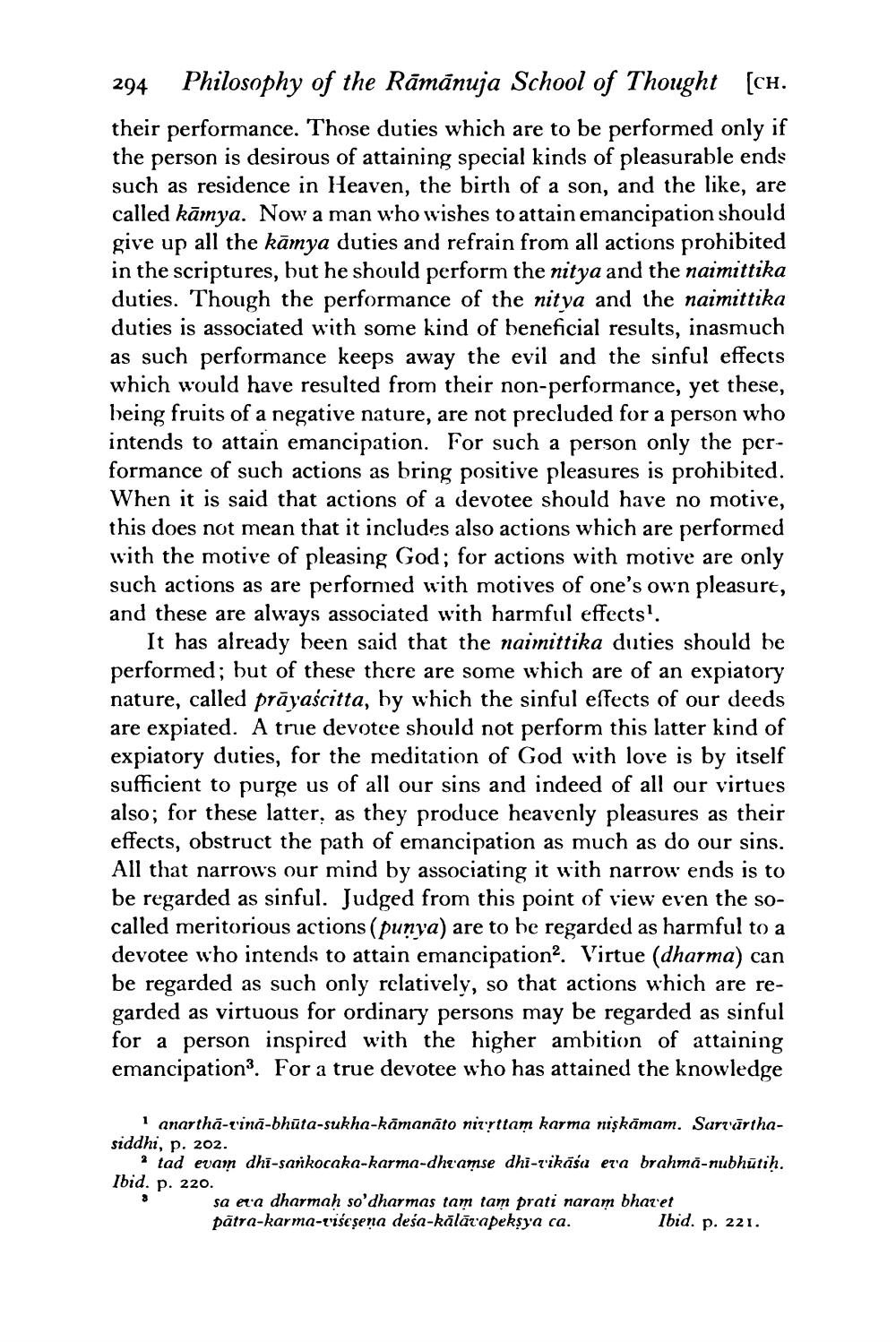________________
294
Philosophy of the Rāmānuja School of Thought [CH.
their performance. Those duties which are to be performed only if the person is desirous of attaining special kinds of pleasurable ends such as residence in Heaven, the birth of a son, and the like, are called kamya. Now a man who wishes to attain emancipation should give up all the kamya duties and refrain from all actions prohibited in the scriptures, but he should perform the nitya and the naimittika duties. Though the performance of the nitya and the naimittika duties is associated with some kind of beneficial results, inasmuch as such performance keeps away the evil and the sinful effects which would have resulted from their non-performance, yet these, being fruits of a negative nature, are not precluded for a person who intends to attain emancipation. For such a person only the performance of such actions as bring positive pleasures is prohibited. When it is said that actions of a devotee should have no motive, this does not mean that it includes also actions which are performed with the motive of pleasing God; for actions with motive are only such actions as are performed with motives of one's own pleasure, and these are always associated with harmful effects1.
It has already been said that the naimittika duties should be performed; but of these there are some which are of an expiatory nature, called prayaścitta, by which the sinful effects of our deeds are expiated. A true devotee should not perform this latter kind of expiatory duties, for the meditation of God with love is by itself sufficient to purge us of all our sins and indeed of all our virtues also; for these latter, as they produce heavenly pleasures as their effects, obstruct the path of emancipation as much as do our sins. All that narrows our mind by associating it with narrow ends is to be regarded as sinful. Judged from this point of view even the socalled meritorious actions (punya) are to be regarded as harmful to a devotee who intends to attain emancipation2. Virtue (dharma) can be regarded as such only relatively, so that actions which are regarded as virtuous for ordinary persons may be regarded as sinful for a person inspired with the higher ambition of attaining emancipation3. For a true devotee who has attained the knowledge
1anartha-vinā-bhūta-sukha-kāmanāto nivṛttam karma niṣkāmam. Sarvārtha
siddhi, p. 202.
2 tad evam dhi-sankocaka-karma-dhramse dhi-vikāśa eva brahma-nubhūtiḥ. Ibid. p. 220.
8
sa eva dharmaḥ so'dharmas tam tam prati naram bhavet pătra-karma-viścṣena deśa-kālāvapekṣya ca.
Ibid. p. 221.




